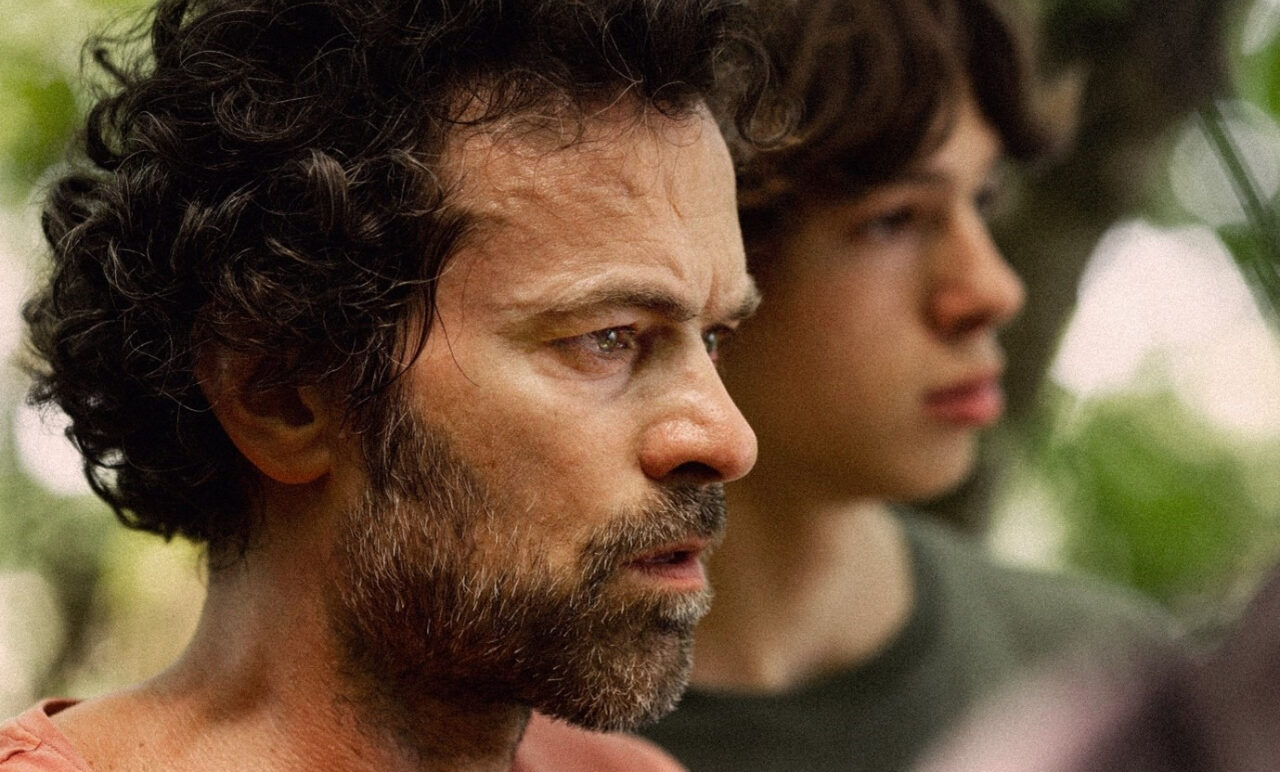The Animal Kingdom

Thomas Cailley’s debut feature, Love at First Fight, introduced a director brimming with a uniquely acerbic, irreverent sensibility, in keeping with its title. With a rather more unorthodox but aptly direct title, the director returns with The Animal Kingdom. Regardless of rubrical innovation, Cailley has sustained this irreverence for his second feature to somewhat mixed effect.
The world of Cailley’s invention is one in which a mysterious disease is causing people to slowly mutate into animals. The film opens with the phenomenon already in full swing; sightings of the transitioning beings – referred to colloquially as “critters”, and officially as “victims” – are greeted with a response verging on nonchalance, placing the tone firmly in the field of surrealist comedy from the get-go. François (Romain Duris) and his teenage son, Emile (Paul Kircher), are in the process of coming to terms with the fact that the matriarch of their family has succumbed to the condition.
But François is not willing to give up on his wife. “She’s still the same person,” he says to Emile with a forlorn defiance. When a group of the hybrids escape en route to a facility, François sees it as an opportunity to find and possibly reconnect with her, even though she is plummeting deeper into animalism. However, when Emile begins to realise that he has contracted the condition, growing wolf-like claws and fur, his father’s dream of glueing his family unit back together spins further out of his control, especially when François begins identifying with a community of hybrids that live in the local forest.
Paul Kircher follows on from his committed, vulnerable lead performance in Christopher Honore’s Winter Boy in much the same vein, realising a character struggling to assert autonomy over his coming-of-age, while Duris commits to his role a bubbling, infectious, gruff, fatherly vulnerability – almost like a middle-aged teenager, but one who adheres to his responsibilities. Together, their chemistry is intriguing and, for the most part, sustains the emotional anchor of the story.
The realisation of the hybrids themselves is perhaps the film’s most adventurous and effective strength, combining supple physical performances (Tom Mercier’s Fix, a bird/human hybrid, is a particularly noteworthy outing), with brutally corporeal makeup effects and eminent sound design, for a result that combines Cronenbergian body-horror with a heightened fairytale quality (one of the many genres Cailley draws upon during the length of the film).
For all the ingenuity of the filmmaker’s ideas, however, there are perhaps one (or three) too many of them to sustain. From a coming-of-age narrative to middle-aged love gone gradually awry to adolescents on the fringes, it seems as though Cailley has simultaneously covered them all and none of them. The Animal Kingdom‘s inability to reel in its themes does ultimately lead to a level of satisfaction that falls below the expectations ignited by its promising concept and intriguingly jagged tone, while its unruly, yet admirably adventurous final act, does drain the audience’s tank, which is already running on reserve.
It’s an elaborate swing and miss, but not one without some fire in its belly.
Matthew McMillan
The Animal Kingdom does not have a UK release date yet.
Read more reviews and interviews from our London Film Festival 2023 coverage here.
For further information about the festival visit the official BFI website here.
Watch the trailer for The Animal Kingdom here:























Facebook
Twitter
Instagram
YouTube
RSS